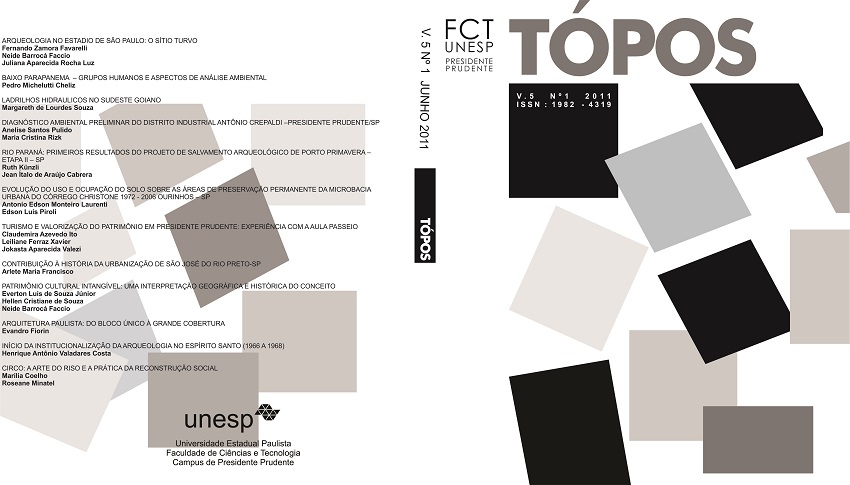TURISMO E VALORIZAÇÃO DO PATRIMÔNIO EM PRESIDENTE PRUDENTE: EXPERIÊNCIA COM A AULA PASSEIO
Résumé
Este trabalho é fruto da aplicação de conceitos pedagógicos desenvolvidos por Célestin Freinet, e especialmente a metodologia da aula passeio. Esta atividade foi aplicada em crianças, com visitas monitoradas a lugares de interesse turístico da cidade de Presidente Prudente. A premissa básica desta experiência é a correlação existente entre turismo e educação. Pois na prática do turismo está presente o processo de aprendizagem, conceitos de diversas áreas do conhecimento são construídos e reelaborados, pois não se pode negar que ao visitar um lugar, o turista entra em contato com suas singularidades: Expressões artísticas, folclóricas, geografia e história, entre outros, que podem estimular e enriquecer o arcabouço de conhecimento e conceitos deste indivíduo. Através de visitas monitoradas aos pontos turísticos da cidade os estudantes podem construir conceitos referentes aos conteúdos da área de Geografia, História e temas transversais com muito mais facilidade, pois aprendem através da totalidade do espaço vivenciado, não aquele descrito em material didático, mas aquele percebido como síntese de múltiplos espaços e tempos. A paisagem ganha significado, pois é vivenciada pelo aluno, que passa a perceber sua construção e reconstrução, assim como os agentes atuantes neste processo, e acima de tudo, se reconhece como parte integrante desta realidade e como agente transformador da sociedade.
Palavras chave: turismo, educação, patrimônio
Abstract
This piece of work is a consequence of pedagogical concepts developed by Célestin Freinet and especially the methodology applied on the tour class. This activity was applied to children with monitored visits to touristic spots in the city of Presidente Prudente. The basic premise of this experience is the relation between tourism and education since on the practice of tourism the learning process is also present, concepts of different areas of the knowledge are built and organized since while visiting a touristic spot the tourist gets in touch with its particularities: artistic expressions, wealth of knowledge and concepts of this individual. Through these monitored visits to the touristic spots of the city the students are able to build concepts related to the area of Geography, History and other themes with more easiness since they learn through real experiences differently from when it happens through teaching materials. The landscape gains meaning because it is experienced by the student that starts to realize its building and rebuilding as well as all the other aspects acting on this process and above all he can recognize himself as an important aspect of this reality responsible to change and transform the society.
Key words: tourism, education, patrimony

